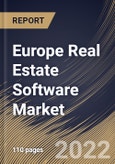Efficient real estate software enables the generation of reports in daily monthly or yearly format. It is necessary for business firms to review & analyze their operation in order to make changes accordingly for better outcomes. The reports generated by the real estate software let the user know about the pending tasks & also provide feedback on adopted strategies which allows the operator to provide effectiveness in communication or advertisement. This further allows the business to work on different formats such as changing the subject of the mail, eliminating things that did not work efficiently & making the mails more action oriented.
Many of the real estate businesses work on various platforms including direct contacts, websites, online advertisements, social media & farming etc. and the software allows effective integration between all these platforms. Also, maintaining separate accounts for all these platforms is time consuming as well as inefficient for the long term because the data is required to be in compiled form.
The real estate market is stable in the region which is the result of specific institutional features. The government involvement in the real estate sector has increased the supply of housing. The traditional system of real estate financing has also resulted in the growth of the real estate industry. Also, the insufficient supply of rental accommodation is expected to attract people to purchase their own properties when it seems to be beneficial.
The current unrest in the international economy appears to have had little or no impact on Germans who are building new homes or buying and selling old ones. According to new data from Germany's Federal Office of Statistics, German construction firms invested 4.7 billion euros in tangible fixed assets in 2018, up 17.4 percent over the previous year. This was the highest level of investment in 24 years.
The Germany market dominated the Europe Real Estate Software Market by Country 2020, and is expected to continue to be a dominant market till 2027; thereby, achieving a market value of $892.2 million by 2027. The UK market is estimated to witness a CAGR of 7.2% during (2021 - 2027). Additionally, The France market is expected to exhibit a CAGR of 8.8% during (2021 - 2027).
Based on Deployment Type, the market is segmented into Cloud and On-premise. Based on Type, the market is segmented into Customer Relationship Management Software, Enterprise Resource Planning Software, Property Management Software, Contract Software, and Others. Based on Application, the market is segmented into Residential and Commercial. Based on End-use, the market is segmented into Architects & Engineers, Real Estate Agents, Project Managers, and Others. Based on countries, the market is segmented into Germany, UK, France, Russia, Spain, Italy, and Rest of Europe.
The market research report covers the analysis of key stake holders of the market. Key companies profiled in the report include SAP SE, Autodesk, Inc., Oracle Corporation, Microsoft Corporation, Altus Group Limited, CoStar Group, Inc., MRI Software LLC, RealPage, Inc., and Yardi Systems, Inc.
Scope of the Study
Market Segments Covered in the Report:
By Deployment Type
- Cloud
- On-premise
By Type
- Customer Relationship Management Software
- Enterprise Resource Planning Software
- Property Management Software
- Contract Software
- Others
By Application
- Residential
- Commercial
By End-use
- Architects & Engineers
- Real Estate Agents
- Project Managers
- Others
By Country
- Germany
- UK
- France
- Russia
- Spain
- Italy
- Rest of Europe
Key Market Players
List of Companies Profiled in the Report:
- SAP SE
- Autodesk, Inc.
- Oracle Corporation
- Microsoft Corporation
- Altus Group Limited
- CoStar Group, Inc.
- MRI Software LLC
- RealPage, Inc.
- Yardi Systems, Inc.
Unique Offerings from the Publisher
- Exhaustive coverage
- The highest number of market tables and figures
- Subscription-based model available
- Guaranteed best price
- Assured post sales research support with 10% customization free
Table of Contents
Companies Mentioned
- SAP SE
- Autodesk, Inc.
- Oracle Corporation
- Microsoft Corporation
- Altus Group Limited
- CoStar Group, Inc.
- MRI Software LLC
- RealPage, Inc.
- Yardi Systems, Inc.








